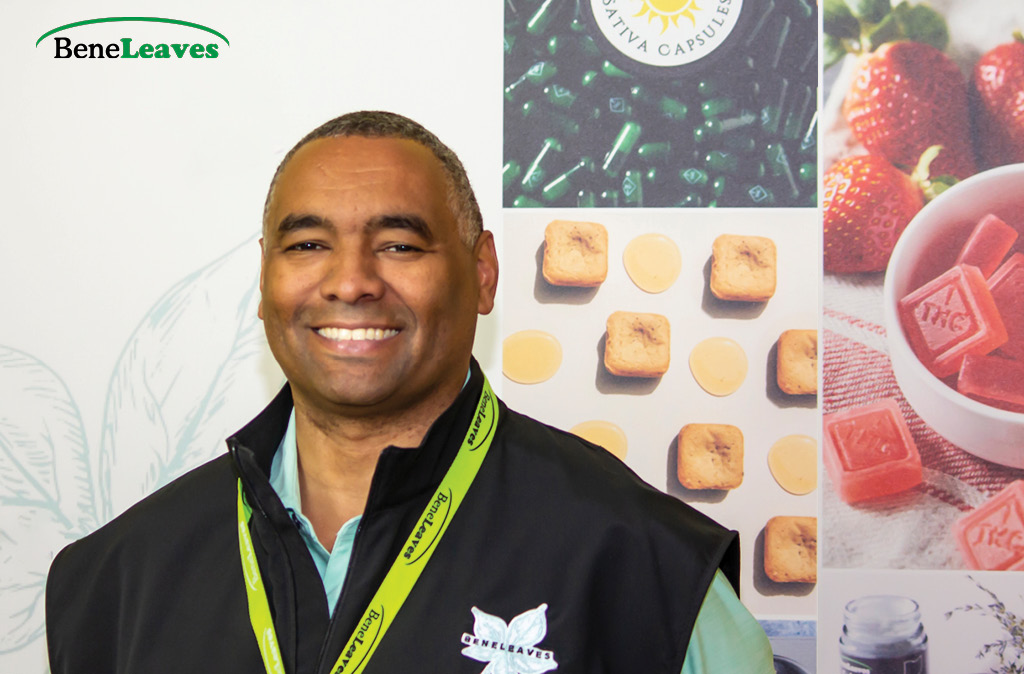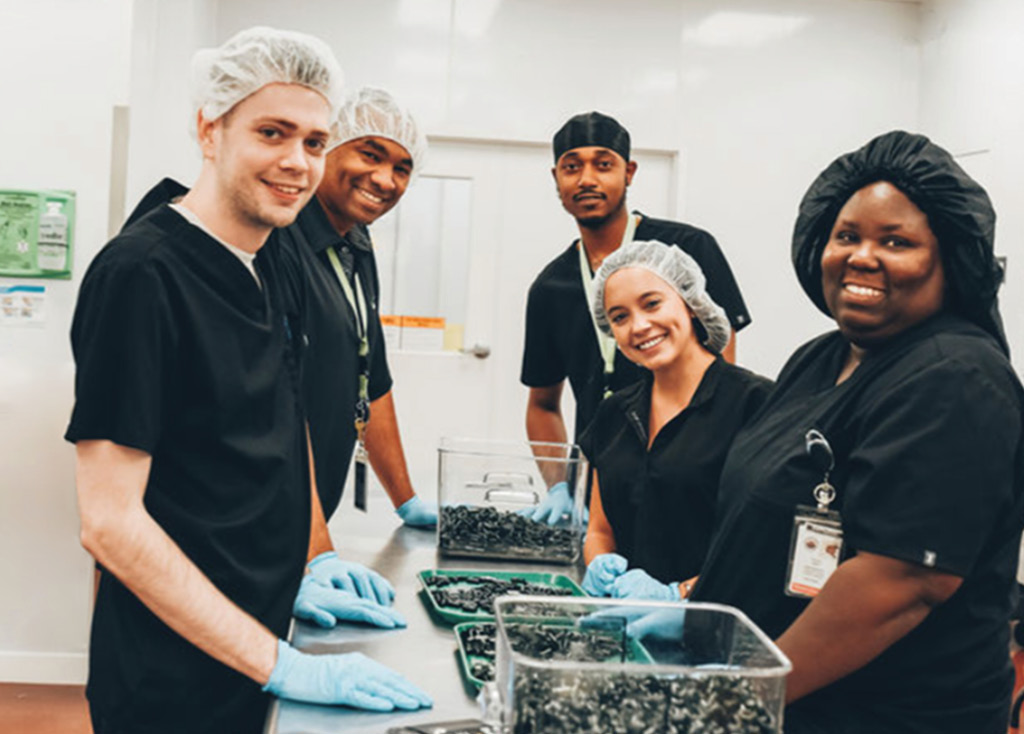BeneLeaves, Pursuing Diversity in Cannabis Through Industry Awareness
Last year, in celebration of Black History Month, Standard Wellness highlighted individuals that contributed to the cannabis industry across the US through their ingenuity, advocacy and scientific discoveries. This year, instead of highlighting those who have contributed to the space, we’re bringing to the forefront our counterparts here in Ohio who are currently writing history and changing the industry as minority owned cannabis businesses. Ohio legalized medical marijuana in 2017 and awarded licenses in 2018, four of which went to minority owned businesses here in Ohio; Beneleaves, Harvest of Ohio, Noohra Labs, and Kwen Extracts. As we launch the blog section of our website we proudly start with a two part series where we interview and discuss diversity with two of these trail blazing Ohio companies; Beneleaves and Harvest of Ohio.

Bill Williams Jr.,
President and Owner of BeneLeaves
On January 27th we sat down with Tahir Johnson, a former financial investor who is now the Head of Diversity for the US Cannabis Council, and Bill Williams Jr., the President and Owner of Beneleaves, a minority owned and operated cannabis processor in Ohio. Bill got his start in the consumer-packaged goods industry in his family’s business Glory Foods, a brand that can now be found in every major supermarket the United States including Kroger, Meijer, Walmart, Safeway and Publix. His father started the business in 1989 and found most of their success and growth through word of mouth and grassroots marketing efforts. The family sold the business in 2010 and 8 years later Bill found himself the recipient of a cannabis license in Ohio, which is where this story starts.
Bill starts the interview by laughing and saying that one of his favorite questions to ask people in the space is, ‘what were you doing three years ago,’ because most of us weren’t doing anything related to cannabis. He isn’t wrong, and it’s one of the most unique and encouraging things about this industry. Everything that is needed in a normal business is needed in this industry; marketing, supply chain, accounting, construction, the list goes on and on… and all of the experience and knowledge that these specialties have in their current space is transferable to cannabis. It’s the thing that has Bill as encouraged and optimistic as he is about diversity and the opportunity for people to get involved in cannabis. He elaborates by enthusiastically stating, “Everything you were doing before is translatable to cannabis, and there’s no better time to get into the cannabis space! We’re still figuring all of this out. Everything, is up for grabs. There’s no purple cows here, everything is written in pencil and we need more smart people to join the industry.”
We smile and agree, and Tahir asks Bill to elaborate specifically on the diversity piece of this, and whether or not the cannabis space is more or less difficult to navigate from an ownership and diversity standpoint than the canned foods business was. Bill shakes his head and describes the supermarket industry as having almost no representation, for women or people of color. Is the cannabis industry right now any different? Not really… Almost instantly though, he goes back to that enthusiastic voice from earlier in our conversation and smiles while saying,
“But that’s the thing! It’s a great opportunity for all of us to change the narrative! Canned vegetables have been around for forever, and changing something there would take a lot of money, a lot of time, and a lot of effort. But cannabis, this is our industry to create! This is our opportunity to make this exactly what we want it to be! It’s all about awareness and letting people know that we exist. Our biggest problem is just awareness.”
I found myself grinning with goosebumps on my arms and feeling like I was in the scene from the Goonies, listening to Mikey tell me ‘it’s our, time down here!’ You can’t help but be excited and inspired listening to him say this, especially because he is absolutely right. There are no established norms in this industry yet. We don’t have 100 years of an industry that is dominated by a certain demographic or process that we can’t choose to change; it is all brand new and we as operators and the people within the space have the chance to do something different, impactful, and long lasting. We have the opportunity to set a new standard in what equity and diversity within an industry should look like, and to Bill’s point, bringing awareness to the industry is the first step to pursuing this vision. The model of ‘if you build it, they will come’ just doesn’t work here. Medical marijuana has been legal in Ohio since 2018, and I still meet multiple every day who tell me that cannabis is not legal in this state. If people don’t know it’s an option, how can we expect them to gravitate to this space and want to be part of it? How will we build diverse employee bases and include people of all backgrounds in our leadership and ownership teams, if most of these people don’t even know that jobs and opportunities in the legal cannabis industry exist?

BeneLeaves team
We start by telling and sharing these stories; the story of Bill Williams Jr. and Beneleaves in Ohio. Often times we think to create change it needs to be something big, we have to have a huge idea or vision that solves a problem. I’m reminded of Bill and I’s participation over the last year or so in conversations with the Ohio Black Caucus and the OMCIA (Ohio’s Medical Cannabis Industry Association) talking about diversity and ways to affect change in this space, and sometimes they feel like just that; conversations.
There are always so many great ideas and initiatives that could be implemented, but it doesn’t always feel like progress is made and tangible steps are taken. I often feel myself disappointed in, or even disheartened by, the conversations because of how they play out, and I remind Bill of this for a moment on our call. He acknowledges the sentiment but follows it up with a hopeful and practical note, expressing that although we might want some immediate change, that doesn’t always have to be the case. Of course we want to snap our fingers and see a beautifully diverse and inclusive work force and ownership base, but how do you accomplish that? He doubles down on his comment from earlier in the conversation- having these discussions is a good first step. Bringing awareness to the space is good first step. Truly normalizing this industry and getting the minority applicants for architects, supply chain experts, and marketing gurus to apply for the jobs, that’s how we get there. He notes, “Sometimes just starting with ‘this’, is where you have to be.”
Stay tuned next week for Part 2 of Standard Wellness Black History Month Blog Series, with an interview of Harvest of Ohio and their management team.



